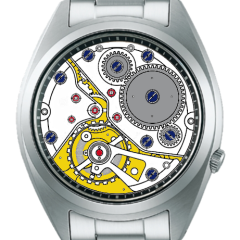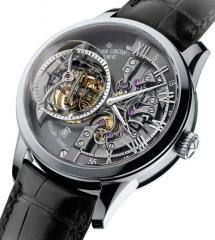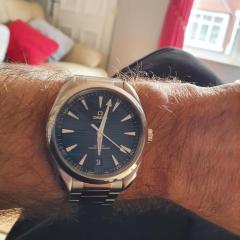Lubricants
-
Recently Browsing
- No registered users viewing this page.
-
Topics
-
Posts
-
By coreymsnow · Posted
Hi folks, I'm doing some homework on getting a watchmaker's lathe, and it's clear I have a lot to learn. But I know one goal: I want to be able to fabricate wheels, which would require an indexing capability. I know how to use large lathes- like, giant metal lathes- but my experience is a few decades old now (but you never forget the smell of the metal cutting oil). So I'm looking to learn anew, and have a goal to get to a point where I can fabricate some basic watch parts. I also have no specific timeframe and want to do this right, so I'll be patient and learn what I need to before spending the money. I know I'm not going to get anything for a pittance, but I'm also not really able to put together the scratch for a $5-$10k lathe. What's out there for a hobbyist that can either handle some fabrication out of the box or can be relatively easily made to do so? Thanks! -
Hello and welcome to the WRT forum. This usually points to broken balance pivot. Though a watch in need of clean & lube can do the same. Easiest diag would be to see if balance pivot doesn't stay in hole jewel of the setting, when you lift one side of balance rim with an oiler or gently with pair of tweezers. Another would be to detach balance complete from the cock and take a look at pivot under high maginfication. Regs
-
Ahhh, yes. I hadn’t thought of that. I’ve serviced quite a few of these and the first time I didn’t realise it was a ships strike pattern! Ha ha, confused me totally until I realised.
-
By RichardHarris123 · Posted
Hello and welcome from Leeds, England. -
Hi Mike, I did, thanks. Found this clip that was really helpful: It says Seth Thomas but it's actually the same Hermle I've been working on. I'd had it working correctly all along but hadn't noticed that the lever with the sprung end stops the hammer a bit short of the bell on the second ding at the end of the half-past sequence. If only I'd put the bell on when testing, rather than just looking at the hammer, my ears would have told me it was working, even if my eyes didn't!
-








Recommended Posts